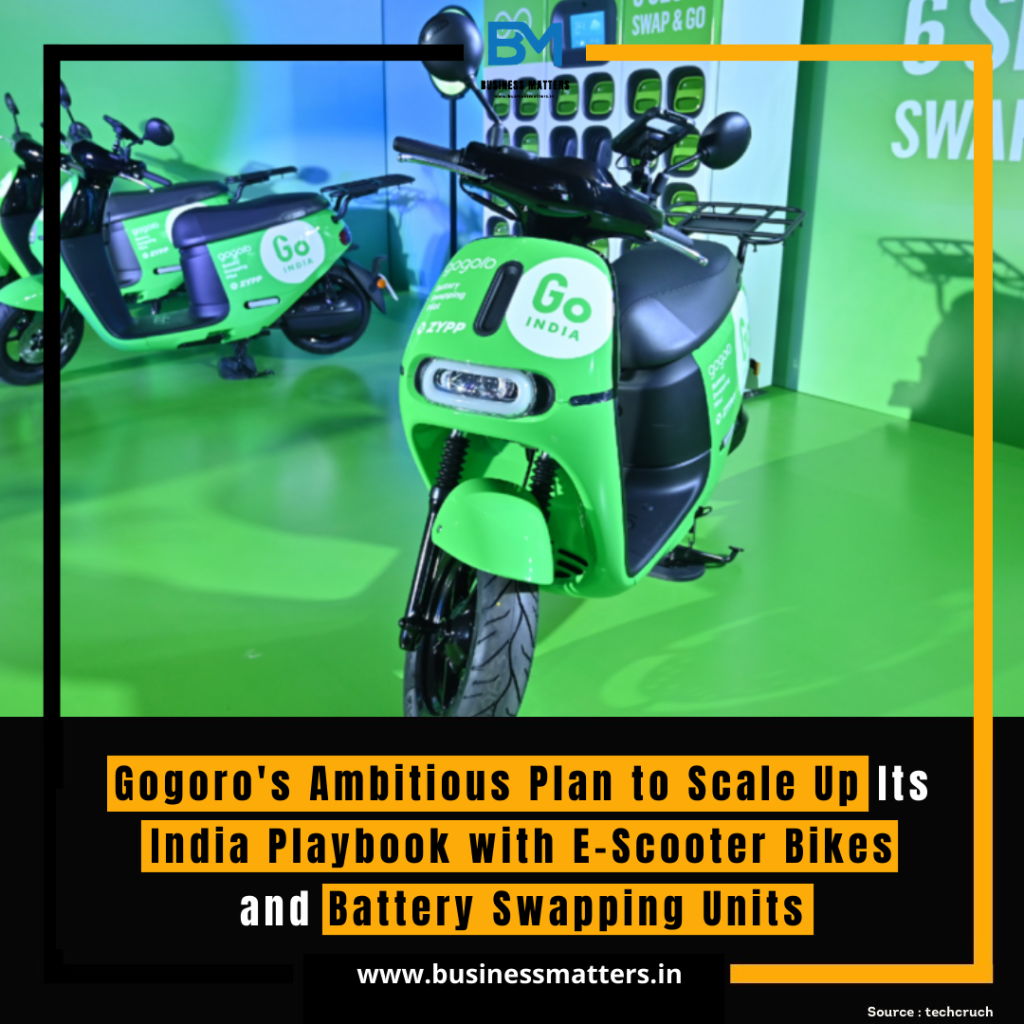Gogoro’s Ambitious Plan to Scale Up Its India Playbook with E-Scooter Bikes and Battery Swapping Units
As the global shift towards sustainable transportation gains momentum, Gogoro, the Taiwanese electric scooter manufacturer, has set its sights on expanding its presence in the Indian market. Leveraging its expertise in electric vehicles (EVs) and innovative battery-swapping technology, Gogoro aims to introduce e-scooter bikes and battery swapping units to address the growing demand for eco-friendly mobility solutions in India.
The Indian automotive market, one of the largest in the world, has been witnessing a surge in interest and adoption of electric vehicles. With concerns about air pollution and a strong push from the government towards cleaner mobility solutions, the timing seems right for Gogoro’s ambitious plans.
Gogoro’s core proposition lies in its unique battery-swapping infrastructure, which allows users to quickly replace depleted batteries with fully charged ones at dedicated swapping stations. This eliminates the need for lengthy charging times, addressing a common concern associated with electric vehicles. In India, where charging infrastructure is still evolving, Gogoro’s battery-swapping technology could offer a practical solution for urban commuters.
The company’s e-scooter bikes, known for their sleek design and cutting-edge technology, are expected to make a significant impact in the Indian market. The scooters are equipped with smart features, connectivity options, and a user-friendly interface, catering to the tech-savvy urban population.
Gogoro’s entry into India involves a strategic approach that includes partnerships with local stakeholders. Collaborations with government bodies, private enterprises, and local dealerships are essential to navigating the complex Indian market successfully. By understanding the unique challenges and opportunities in the region, Gogoro aims to tailor its offerings to meet the specific needs of Indian consumers.
Battery swapping is a key aspect of Gogoro’s India playbook. The company plans to establish a network of battery swapping stations across major cities, ensuring convenient access for users and contributing to the overall adoption of electric mobility. This approach not only addresses range anxiety but also promotes a sustainable and circular economy by efficiently managing battery resources.
The scalability of Gogoro’s model in India is also underlined by its commitment to local manufacturing. By establishing production facilities within the country, the company aims to reduce costs, enhance supply chain efficiency, and contribute to the ‘Make in India’ initiative. This move not only aligns with the Indian government’s focus on boosting domestic manufacturing but also positions Gogoro as a long-term player in the Indian EV market.
Furthermore, Gogoro plans to collaborate with local partners to explore potential synergies and tap into their expertise in navigating the regulatory landscape and understanding consumer preferences. Building a strong ecosystem that involves stakeholders at every level is crucial for Gogoro’s success in the diverse and dynamic Indian market.
In conclusion, Gogoro’s plan to scale up its India playbook with e-scooter bikes and battery swapping units reflects a strategic vision to capture the burgeoning electric mobility market in the country. By combining innovative technology, local partnerships, and a commitment to sustainability, Gogoro aims to make a significant impact on India’s urban transportation landscape. As the electric revolution continues to unfold in India, Gogoro’s approach could serve as a blueprint for other companies looking to establish a foothold in this rapidly evolving market.


